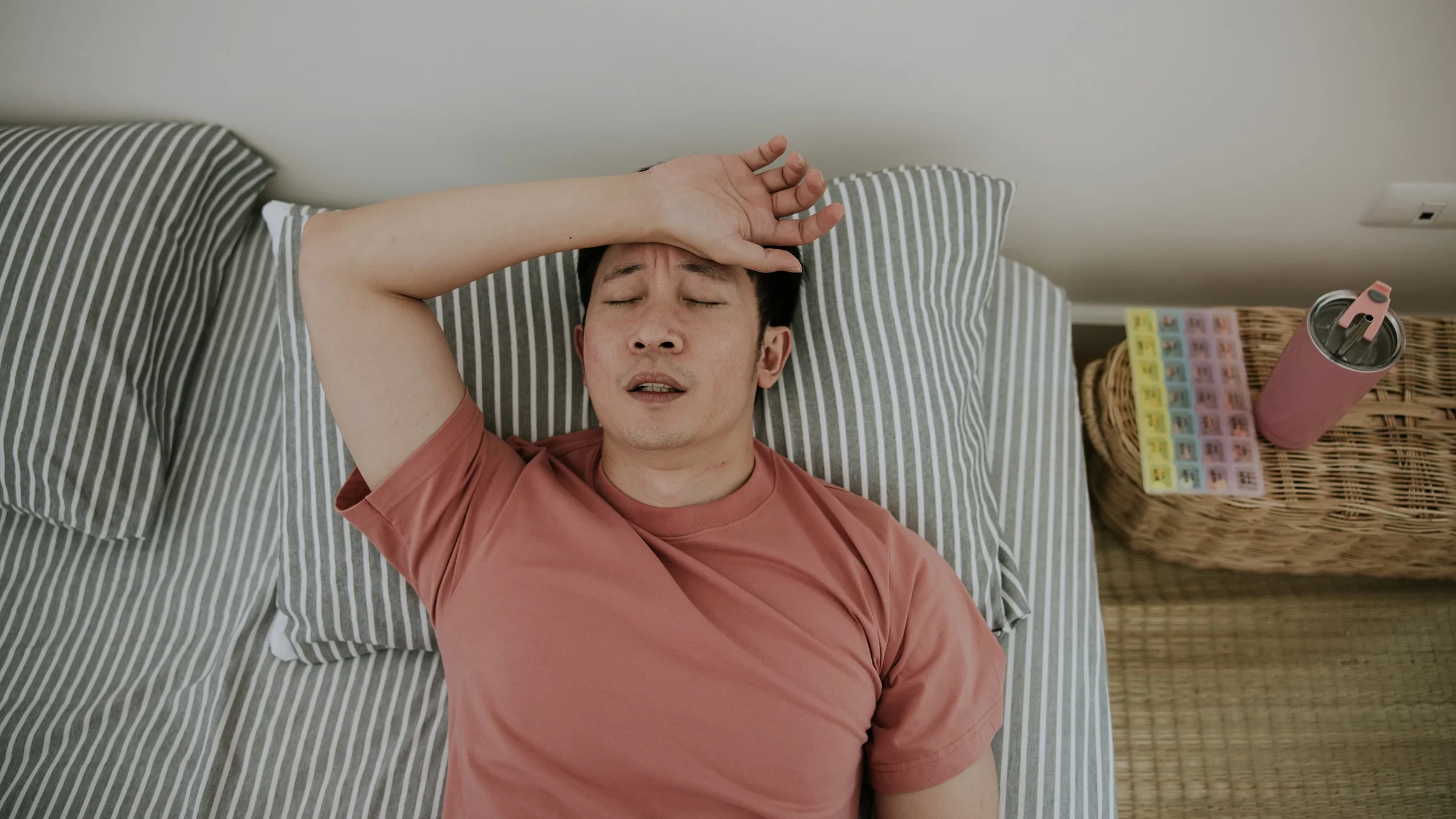Key takeaways:
Mirtazapine (Remeron, Remeron SolTab) is a prescription medication that’s FDA-approved to treat depression. It’s an oral tablet that you can take by mouth before bedtime.
Some people take mirtazapine as an off-label medication for sleep. It isn’t generally a first-choice medication for this purpose, but it can be beneficial if you also have depression.
Your healthcare professional will likely recommend starting with a low dose of mirtazapine. They can gradually increase your dose until you find one that’s both tolerable and effective for your symptoms.
Save on related medications
Medications are often studied to treat one health condition when they’re developed. Sometimes, though, additional uses are discovered during clinical trials or after their initial FDA approval. This is the case with mirtazapine (Remeron, Remeron SolTab), which is approved to treat depression. Some people find it beneficial for sleep because it can cause drowsiness as a side effect.
Mirtazapine treats depression by helping balance brain chemicals called serotonin and norepinephrine. But it also affects one called histamine, which is associated with sleepiness. This is why mirtazapine is typically taken at bedtime and can help ease sleep difficulties experienced by those living with depression.
If a healthcare professional prescribes you mirtazapine off-label for sleep, they’ll likely recommend starting it at a low dose and gradually going up from there. Let’s review seven other important pointers about mirtazapine as you embark on your journey to better sleep.
1. Can you take mirtazapine for sleep?
Yes. Mirtazapine is a prescription medication that you can take for sleep. Mirtazapine causes sleepiness as a side effect, which is likely related to how it blocks histamine.
Mirtazapine may be a beneficial medication if you have depression and are also experiencing sleep issues. However, other sleep medications may be a better choice if you’re having sleep issues but don’t feel depressed.
A healthcare professional that’s familiar with sleep treatments can tell you if mirtazapine would be the right choice for you.
2. What is mirtazapine officially approved to treat?
Mirtazapine is officially FDA-approved to treat major depressive disorder (depression) in adults.
Mirtazapine can be helpful for people who have depression and associated symptoms of sleep difficulties or appetite loss. This is because mirtazapine can cause sleepiness and increase your appetite as side effects.
3. How quickly does mirtazapine put you to sleep?
You’ll likely start to feel sleepy soon after you take a dose of mirtazapine. This can happen in as little as 30 minutes. However, this sedating effect can take up to 2 hours to kick in for some people.
That said, everyone responds to mirtazapine a little differently. Some people may not feel the effects of mirtazapine right away, while others may feel them more quickly. Food shouldn’t affect its onset time, either. You can take mirtazapine on an empty stomach or after eating a meal.
Overall, mirtazapine may help people fall asleep more quickly, stay asleep for a longer period of time, and improve their sleep quality.
Good to know: Mirtazapine takes longer to work for depression symptoms. You may notice positive changes after about 2 weeks of taking it, but you may need to wait a couple months to experience its full effects.
4. How much mirtazapine can you take for sleep?
The best mirtazapine dose for sleep is one that helps you fall asleep with minimal side effects. For insomnia, healthcare professionals generally recommend starting at a low, 7.5 mg dose. This should be taken as a single dose shortly before you’re ready to go to sleep.
Mirtazapine safety considerations: Learn about the most notable mirtazapine side effects and how to manage them.
A carefully calculated prescription: Understand which mirtazapine dosages work best for depression treatment.
Using caution with other medications: Read up on mirtazapine drug interactions to watch out for and how to avoid them.
If you don’t respond to a 7.5 mg dose, your healthcare professional may recommend trying a 15 mg dose. Your dose can be gradually increased over time, up to 45 mg nightly, to address your sleep issues.
Higher doses offer more benefits to some people. But they can also increase the risk of side effects. Constipation, dry mouth, and excessive sleepiness are all possible. Speak to a healthcare professional if you’re still unable to fall asleep or have bothersome side effects. They can further adjust your dose or medication regimen for better results.
5. What are the disadvantages of taking mirtazapine for sleep?
Mirtazapine has pros and cons, as does any other medication. It’s an effective antidepressant that may be a good choice if you have depression and difficulty sleeping. But it may not be the best choice if you don’t have depression.
Side effects, again, are another consideration. You might gain weight while taking mirtazapine. This is because it can stimulate your appetite, which can lead to weight gain over time. Mirtazapine may not be the best choice for you if weight loss is one of your health goals.
6. Is mirtazapine or trazodone better for sleep?
Mirtazapine and trazodone are both antidepressants that are commonly taken off-label for sleep. One isn’t widely considered better than the other.
Mirtazapine and trazodone work in different ways and belong to different medication classes. Mirtazapine is a tetracyclic antidepressant that’s thought to affect brain chemicals such as serotonin, norepinephrine, and histamine. Trazodone is an atypical antidepressant that works by increasing serotonin levels in your brain.
Clinical studies suggest that trazodone and mirtazapine are similarly effective for sleep. However, mirtazapine may be a better choice if you have depression and difficulties with sleep. Trazodone may be an option if you don’t have depression; trazodone is rarely prescribed as an antidepressant.
Ultimately, your healthcare professional will determine whether mirtazapine or trazodone would be better for you. They’ll make this decision depending on any health conditions you have, side effects you may experience, and your personal preferences.
7. What are the best alternatives to mirtazapine for sleep?
The best treatment for sleep difficulties may not actually be medication but, instead, cognitive behavioral therapy for insomnia (CBT-I). This may be the first recommendation from your prescriber or sleep specialist. CBT-I is not only effective while you’re receiving it, but its benefits can continue even after you stop it. In contrast, sleep medications are only effective while you’re taking them.
That being said, other medications that are used to treat insomnia include:
Trazodone
Zolpidem (Ambien)
Zaleplon (Sonata)
Triazolam (Halcion)
Eszopiclone (Lunesta)
Temazepam (Restoril)
Ramelteon (Rozerem)
Doxepin (Silenor)
Suvorexant (Belsomra)
Lemborexant (Dayvigo)
The best mirtazapine alternative for you hinges on your medical history, how effective the medication is for your symptoms, and the side effects you may experience. Make sure to talk to a healthcare professional before trying anything new — no matter if it’s a prescription medication or dietary supplement.
The bottom line
Mirtazapine (Remeron, Remeron SolTab) is a prescription medication that’s FDA-approved to treat depression. Some people take it off-label for sleep difficulties, especially if they have depression, too. Mirtazapine works by balancing brain chemicals including serotonin, norepinephrine, and histamine, which can positively affect mood and sleep.
A healthcare professional may recommend starting mirtazapine at a low dose, which can be gradually increased over time as needed. Mirtazapine may cause side effects, though, such as weight gain, dry mouth, and others. Talk to a healthcare professional if you’re having any bothersome issues with your mirtazapine prescription.

Why trust our experts?



References
Aphena Pharma Solutions - Tennessee, LLC. (2024). Trazodone hydrochloride- trazodone hydrochloride tablet [package insert].
Dolder, C., R. et al. (2012). The effects of mirtazapine on sleep in patients with major depressive disorder. The Annals of Clinical Psychiatry.
Gandotra, K., et al. (2018). Effective treatment of insomnia with mirtazapine attenuates concomitant suicidal ideation. Journal of Clinical Sleep Medicine.
Jilani, T. N., et al. (2023). Mirtazapine. StatPearls.
RemedyRepack Inc. (2024). Mirtazapine- mirtazapine tablet, film coated [package insert].
Sateia, M. J., et al. (2017). Clinical practice guideline for the pharmacologic treatment of chronic insomnia in adults: An American Academy of Sleep Medicine clinical practice guideline. Journal of Clinical Sleep Medicine.
Savarese, M., et al. (2015). Subjective hypnotic efficacy of trazodone and mirtazapine in patients with chronic insomnia: A retrospective, comparative study. Archives Italiennes de Biologie: A Journal of Neuroscience.
Shen, J., et al. (2006). Polysomnographic and symptomatological analyses of major depressive disorder patients treated with mirtazapine. The Canadian Journal of Psychiatry.
Van Moffaert, M., et al. (1995). Mirtazapine is more effective than trazodone: A double-blind controlled study in hospitalized patients with major depression. International Clinical Psychopharmacology.
Vande Griend, J. P., et al. (2012). Histamine-1 receptor antagonism for treatment of insomnia. The Journal of the American Pharmacists Association.
Walker, J., et al. (2022). Cognitive behavioral therapy for insomnia (CBT-I): A primer. Clinical Psychology and Special Education.
















